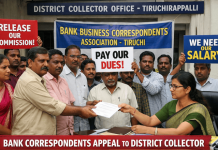By the end of June 2025, RBI stated that all banks in India including public sector and private banks together held ₹67,003 crore in unclaimed deposits. Out of this, Public sector banks (government-owned) hold 87% of all unclaimed money, about ₹58,330 crore. State Bank of India (SBI)alone holds about₹19,330 crore, which is 29% of the total. Punjab National Bank holds ₹6,910.67 crore and Canara Bank holds ₹6,278.14 crore
Minister of State for Finance Pankaj Chaudhary said that Private banks hold the remaining ₹8,674 crore, with ICICI Bank having the highest among them around ₹2,063 crore, followed by HDFC Bank ₹1,609.56 crore and Axis Bank ₹1,360.16 crore.
Unclaimed money in Indian banks is growing rapidly. Before 2022–23, only around ₹4,500 crore was added to the Depositor Education and Awareness Fund each year. This fund is managed by the Reserve Bank of India (RBI) and is meant to safeguard unclaimed money while also educating depositors. But in 2022–23, this amount of unclaimed money jumped to ₹12,254 crore, and was still high in 2023–24 at ₹11,794 crore.
What Steps Is the Government Taking to Address Unclaimed Bank Deposits?
In June 2023, the government launched a campaign called ‘100 Days 100 Pays’. Banks were asked to find and return the 100 biggest unclaimed deposits in every district of India. Banks were asked to trace the rightful owners (or their legal heirs) of these accounts and settle the claims within 100 days.
To help people find their unclaimed money easily, the RBI also launched a website called UDGAM, where people can search for any unclaimed money across multiple banks. As of July 1, 2025, over 8.59 lakh people had registered and used the portal.
Unclaimed deposits are people’s money that’s just lying unused. The RBI and banks are trying to return this money to the rightful owners or their families. The RBI says the unclaimed money is kept in a special fund. This fund is used for activities that protect and educate depositors.
Over time, many bank accounts and deposits are forgotten due to reasons like the account holder passing away or people not remembering they had an account, passing away without informing family, or losing access to account details. It also shows how important it is for individuals and families to regularly check on old accounts, fixed deposits, or savings left behind in different banks.
Also Read: RBI’s latest guidelines on inoperative accounts and unclaimed deposits in banks





